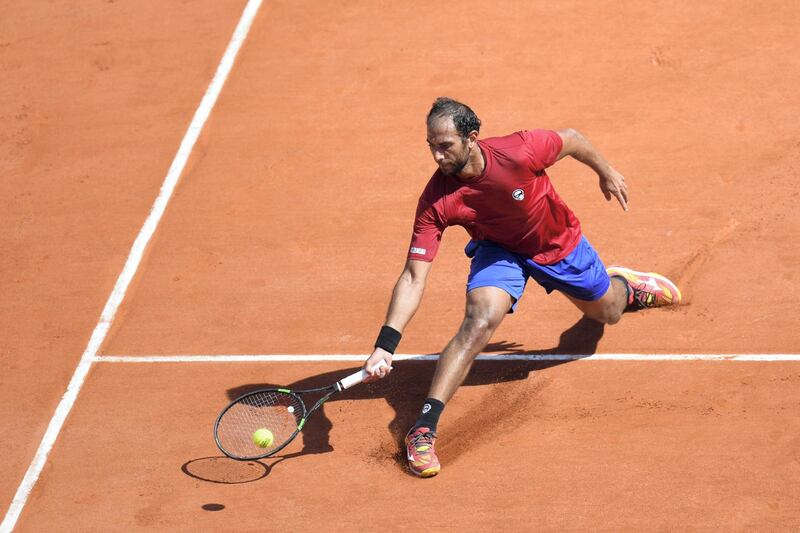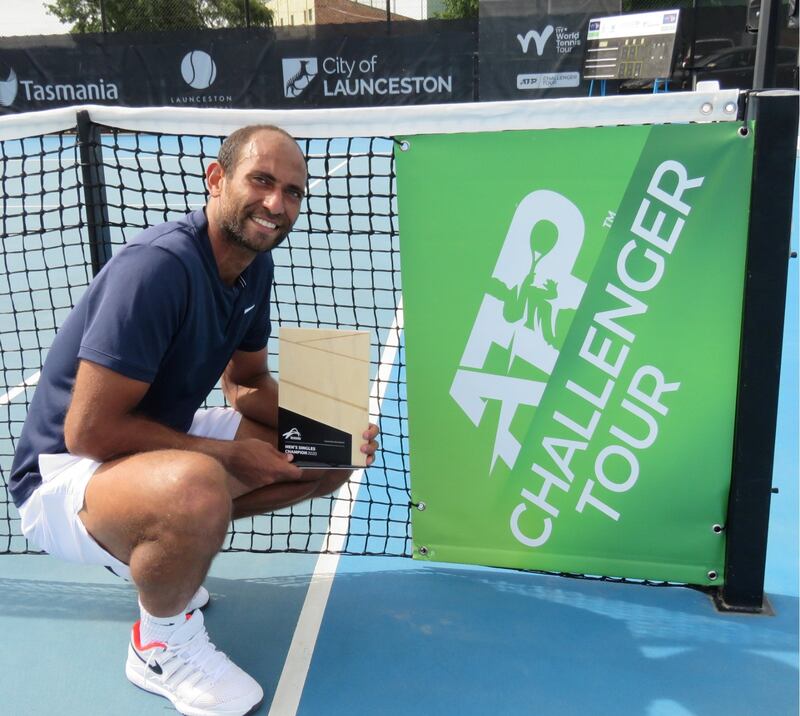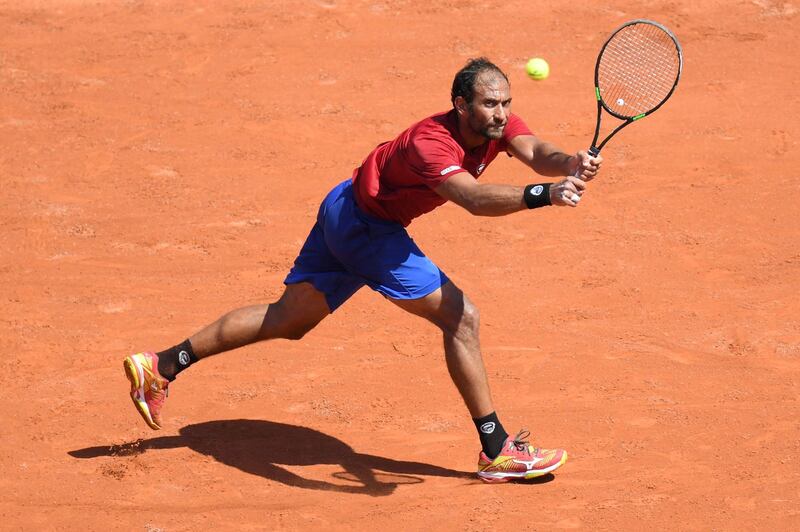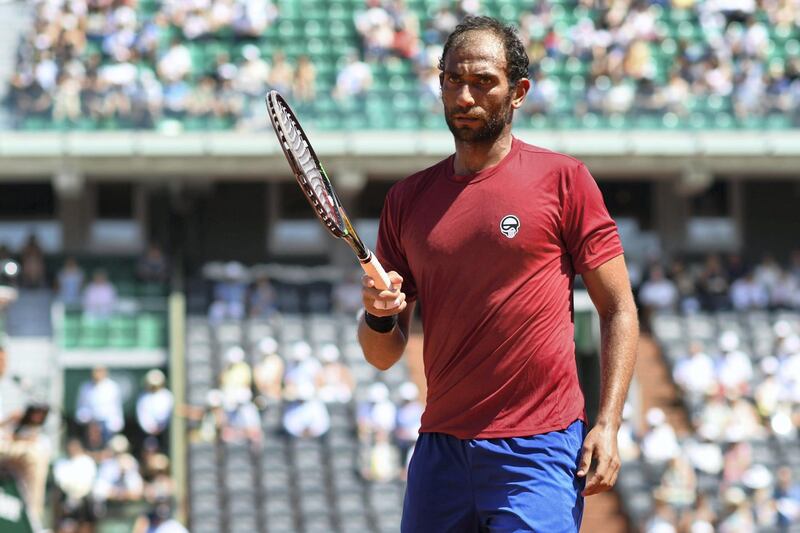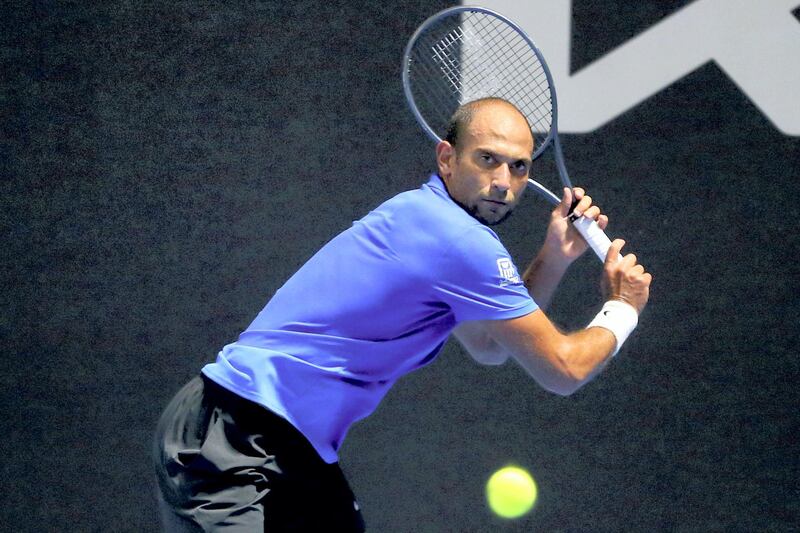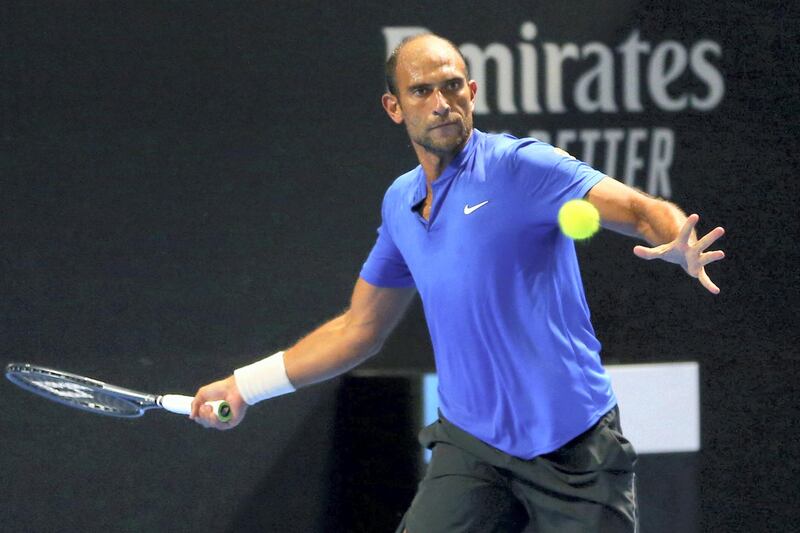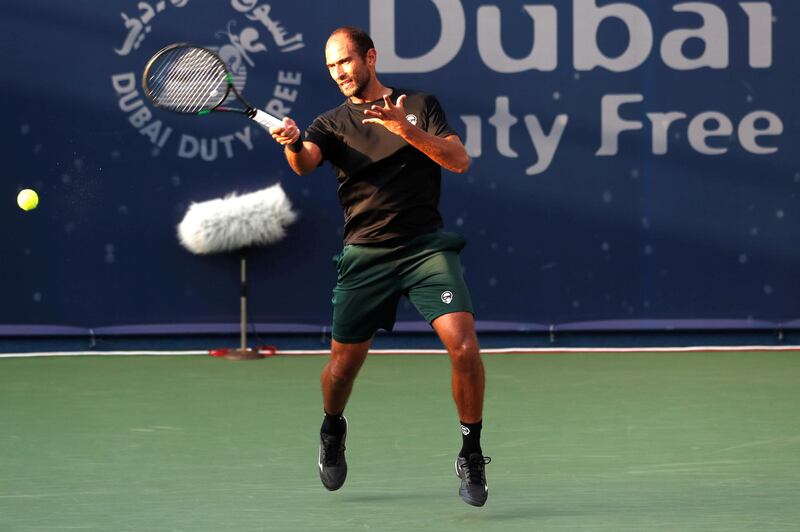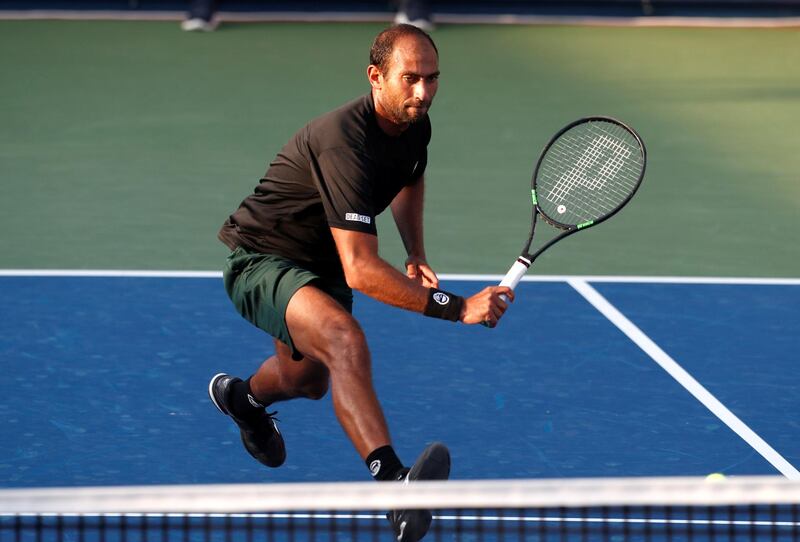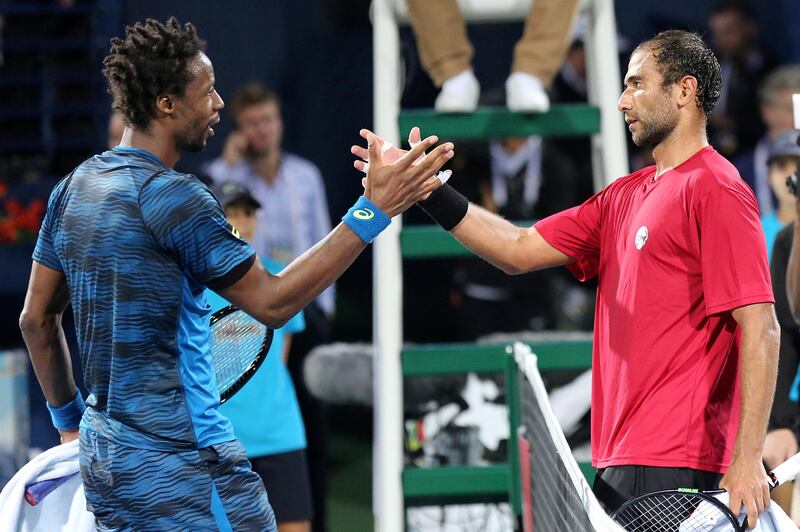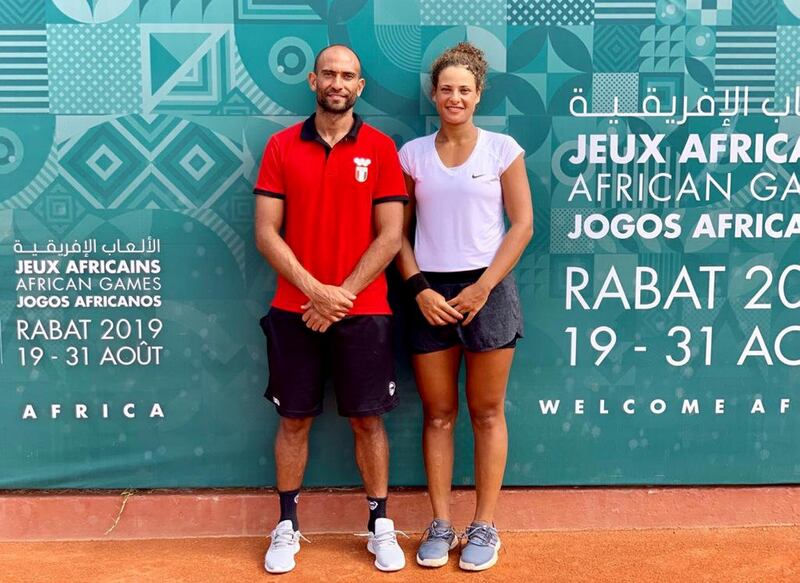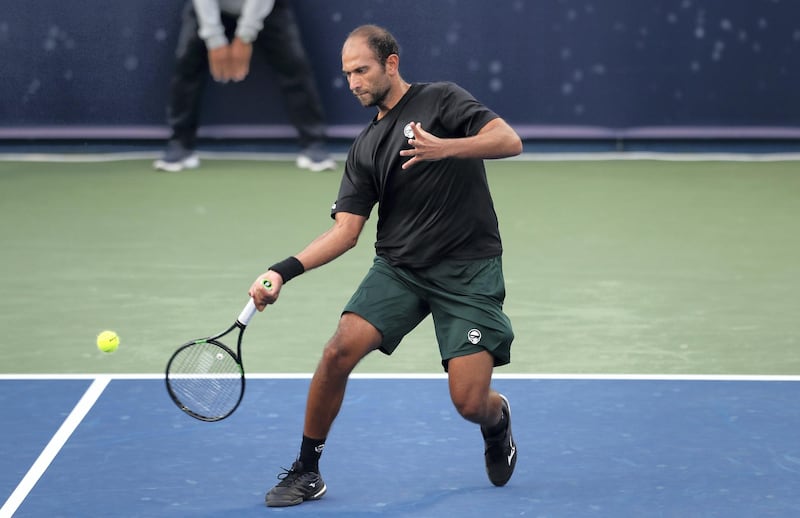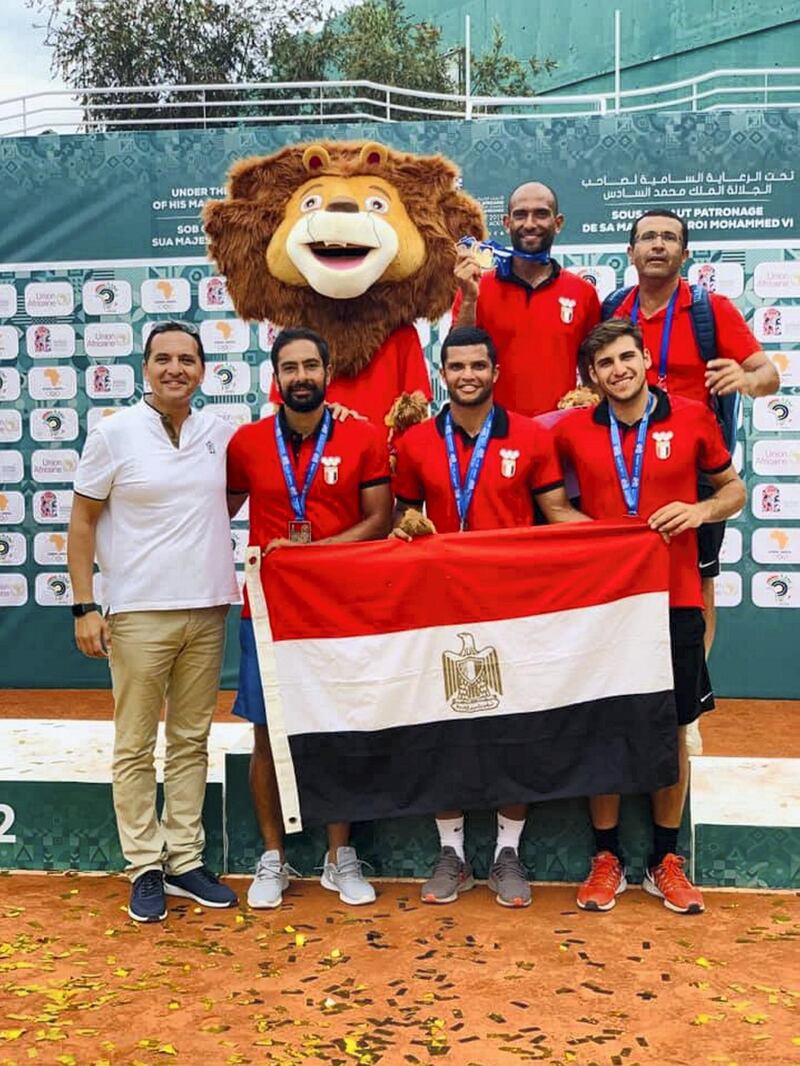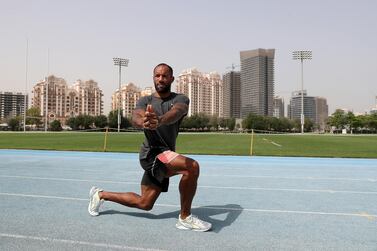As part of our build-up to the Tokyo Olympics we will be profiling Arab athletes and para-athletes, as well as those from the Mena region hoping to make it to this summer's Games
When Mohamed Safwat made history in August 2019 by becoming the first Egyptian man to qualify for the tennis event at the Tokyo Olympics, he said that achievement “unlocked something” within him.
About a year and a half ago, a month shy of his 29th birthday, Safwat flew to Morocco to compete at the African Games, knowing that a gold medal in men’s singles would secure him a spot at the Olympics in 2020.
He was the highest ranked player there and was the outright favourite to top the podium. A week later, Safwat walked away from Rabat with the gold medal and a spot in Tokyo, living up to the expectations and rising above the pressure to mark an unprecedented feat by an Egyptian male tennis player.
In women's singles at the Moroccan capital, Mayar Sherif also grabbed gold and punched her ticket to Tokyo alongside Safwat, to guarantee two Egyptians would make history for their nation when the Olympics came around.
A few months later, Safwat qualified for a Grand Slam main draw for the first time in his career at the 2020 Australian Open. His only previous main draw appearance at a major had come as a lucky loser at Roland Garros in 2018, but this time, he made it through by defeating three quality opponents at Melbourne Park.
It made him the first Egyptian since Ismail El Shafei in 1978 to feature in an Australian Open main draw.
Safwat lost a four-setter in the first round in Melbourne but shook off the disappointment in tremendous fashion by storming to his maiden Challenger title in Launceston, Australia two weeks later. His success there saw him become the first Egyptian to win a Challenger since Tamer El Sawy in 1996 and took him to a career-high No 130 in the world rankings.
“Qualifying for the Olympics was one of the things that gave me a big boost. Winning the African Games gave me a lot of confidence, it unlocked something in me and it was a turning point in my career,” Safwat, 30 said.
It was February 2020 and Safwat was ready to keep riding that wave of momentum with his eyes firmly fixed on making his top-100 debut and improving his form so he could perform well at the Tokyo Olympics in the summer.
Unfortunately, the world came to a screeching halt four weeks later due to the pandemic and Safwat spent five long months alone in Cairo, without his coach, and unable to train properly.
When the tennis tour resumed end of summer, he was short on prep and lost in the opening round in seven consecutive tournaments.
It was already November, which is when most players choose to shut down their seasons to take a short break and start preparing for the following year, but Safwat refused to end his 2020 that way.
His coach, former world No 17 Gilbert Schaller, was unable to travel with him because of the pandemic, so Safwat decided to have a trial period with Dejan Zlicar, a Croatian coach from the acclaimed Good to Great Academy in Sweden. They went to Brazil together for two Challenger tournaments and Safwat won three of his last five matches of the season to make sure he ended the year on a somewhat positive note.
Instead of taking a break, Safwat went to Sweden with Zlicar and immediately got back to work. He had played his last match of the year on December 4, flew from Brazil to Sweden the next day and was on the practice court on December 7.
"I didn't have a break but I feel good, I feel like it was needed. I enjoyed my preseason in Sweden, it was something new for me," Safwat told The National at the beginning of the 2021 season.
“I feel like I’m back to where I was at the start of 2020 – physically, mentally, tennis-wise, there’s been a lot of development. I feel good.”
Safwat grew up in the city of Mansoura, located 120km north-east of Cairo in the Delta region. He started playing tennis seriously at a club called ‘Geziret El Ward’ at the age of 10, a relatively late stage compared to other pros.
“We were a group of five to six kids training together and I think I was the worst one of them all,” he said.
Football was Safwat’s “first love” and he played as a goalkeeper when he was a kid. “I was obsessed with the cartoon ‘Captain Majid’ and my idol was the character ‘Raad’, who was the goalie."
When another kid accidentally kicked his hand during a football game, Safwat went home and told his mother he wouldn’t play any sport other than tennis moving forward.
Gustavo Kuerten was the first player Safwat remembers watching on TV, when the Brazilian legend lifted his first of three Roland Garros titles in 1997.
"I liked his style. I don't think I knew much about tennis at the time, I don't think I could even understand the scoring system," said Safwat, who was barely seven when Kuerten reigned supreme in Paris for the first time.
Tennis is popular in Egypt – although nowhere near as much as football – but the lack of any system, structure or funding, makes it incredibly difficult for any player from the country to break through. Only one Egyptian has ever ranked inside the top 100 and that was El Shafei in the 1970s.
That never discouraged Safwat though, as he forged his own path in a sport with countless barriers to entry and limited opportunity for success.
“Since I was a kid, watching Federer, Kuerten, Agassi and Sampras on TV, I always thought, ‘why can’t we be like them and make it?’” he said.
“I was never convinced that this life is too tough and that it’s a tough road, that it requires a lot of money, that it requires luck. I always saw it as: He trains, I train. He works hard, I work hard. He has legs, I have legs.
“I was young and didn’t understand what I needed in order to make it. Now I get it; I get that it’s about the knowledge, having someone around you to show you the way, people who know what you need to develop and to take the next step.
“When I was young, I always thought, ‘why not?’ and many people laughed at me for it.”
Safwat has been Egypt’s top-ranked ATP player for over a decade and when he made his Grand Slam debut in Paris in 2018, he was the first from his nation to compete at a major in 22 years.
Watch the best moments from the match opposing Grigor Dimitrov and Mohamed Safwat at the first round ! More highlights on RG Youtube Channel >> https://t.co/NQYcZaWbHW #RG18 pic.twitter.com/8FbdJCbyP6
— Roland-Garros (@rolandgarros) May 27, 2018
At the time, he credited his surge to a shift in his mentality and a newfound belief in himself.
“We shouldn’t act like victims because of our circumstances and feel that the world is against us,” said Safwat, referring to the lack of support given to Arab tennis players.
“Yes we don’t necessarily follow a direct path, because we lack the knowledge of how to make it in our part of the world, but with our individual effort, and without many people behind us and supporting us, we can achieve great things.
“I lived in that ‘victim role’ for a while, and when I snapped out of it, I realised that we aren’t the only players in the world that don’t have support. There are so many players who have no support, and they are better than us and ranked better than us.”
Ditching that defeatist attitude has done wonders for Safwat as he continues to navigate his way past numerous obstacles. At the start of the year, he stated the Olympics were once again, a priority for him.
“We put down a list of specific goals when we had our meeting at Good to Great Academy before we started our preseason. One of them is to have a run at the Olympics. I don’t just want to show up, say hello, play a few games and then leave. We drew up a plan so that by July, I’m hitting my peak, so I can have a good run at the Olympics,” the Arab No 1 said in January.
But planning has once again proven difficult for the Egyptian, who has been stuck in Cairo for the past five weeks, trying to renew his Schengen visa that would allow him to compete in Challenger events in Europe.
Numerous embassies have turned him away, telling him he didn’t have a big enough reason to be granted a visa, but he remains optimistic, despite the lack of support from the powers that be on the Challenger Tour, according to Safwat.
“I’m just using this time to prepare so that I’m ready once I’m able to get back on the road again,” he said. “I have my team with me and we’ve been practicing for five weeks. We worked on hard [courts], then switched to clay. We changed the plan I think five times. It’s a similar situation to the lockdown last year but at least this time I’m not alone.
“This time I feel like I’ve improved a lot and my testing, my performance numbers are improving so I’m trying to sort this visa issue at the moment and when I am able to compete again, I’m going to be ready, whenever that will be.
“Worst case scenario I’ll get back to competition during the French Open [end of May] but God willing it’ll happen before then.”
Peaking at the Olympics this summer might prove challenging for Safwat, given this unexpected interruption to his season, but he insists the Games provide a special kind of motivation, different than what he experiences at regular tournaments throughout the year.
“When you represent your country in a competition, be it in Davis Cup, or the Olympics, it’s a different pressure, it’s always unique,” he said.
“When I look back at any Davis Cup tie I’ve played in Egypt, I’m always super motivated and super pumped; the atmosphere is different to when you’re playing a regular tournament.
“At any other tournament, at the end of the day it’s for you, and you’re getting all the glory. But in Davis Cup or Olympics, you feel it’s not for you, it’s a different kind of motivation.
“For me, when I play Davis Cup, I feel my whole body is covered in goose bumps. You always fight until the last minute, you really give it your all.”
Safwat mentions former wrestler, Karam Gaber, who won gold in Athens 2004 and then took silver eight years later in London, as one of the Egyptian Olympians he admires the most. “Hedaya Malak [the taekwondo bronze medallist in Rio 2016] too, it was incredible what she was able to do,” he added.
Since he and Sherif qualified for Tokyo, Safwat says he’s been getting more attention back home, and so has tennis in general. Both players have signed sponsorship deals on the back of their qualification and he feels “tennis is becoming more popular and it’s emerging on the sports map in Egypt.”
The best example Safwat has set for the next generation of Egyptian, and Arab, tennis players, is that he believed in himself enough to actually invest in his own career. Whenever a door was shut, he searched for a window to open, and he’s not ready to give up any time soon.
“I took a different path than the generation before me, I committed to what I’m doing, I didn’t give up on my dreams, I had a rough time throughout the years, ups and downs, and frustration and sadness but thankfully I was always surrounded by the right people,” he says.
“What I’m doing now will be good for kids back home and should motivate them that they can do it, with the right knowledge and the right people around you, you really can achieve it.”
